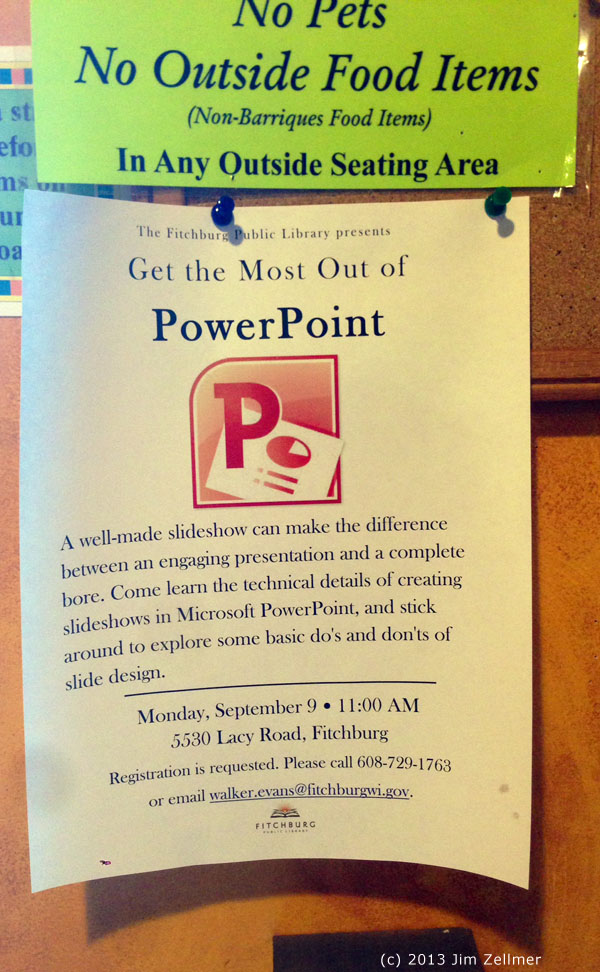In fact, nobody can buy a Tesla car in Texas. The State of Texas has decided that you can’t buy a car from Tesla.
Why? Well, the Texas Automobile Dealers Association lobbied hard against letting Tesla sell cars in Texas, spending $276,750 on Texas political campaigns – about 75% to Republicans, (including $2000 to Rep. Dale, the incumbent in the seat I’m running for.)
Tesla doesn’t use car dealerships. They sell directly to the consumer. No haggling, no upselling, no commission for employees, and uniform prices at every store. You just point to the car, say “I want that,” and you buy it. It makes a lot of sense for Tesla. Customers don’t like car dealers, and car dealers don’t like electric cars, so why would you try to sell an electric car to a customer through a car dealership? It is capitalism – a producer of a good is responding to the incentives of the market.
Monthly Archives: September 2013
Seeking a Low End iPhone Channel
Carmakers are desperate for ways to excite young buyers, who are increasingly apathetic about car ownership.
“There are products that are hipper for young people than cars,” said Ferdinand Dudenhöffer, a professor at the University of Duisburg-Essen in northern Germany and an industry analyst. “The car companies are still using the old marketing pitch — more horsepower. That doesn’t speak to young people any more.”
Interest in battery-powered cars has faded after disappointing initial sales, but it could pick up again this year with the market introduction of the BMW i3. The vehicle has perhaps the most revolutionary new design by an established carmaker in years, not only because of its electric propulsion system but also because the passenger compartment is made of carbon fiber rather than steel, to save weight and extend the distance the car can travel between charges.
There is also speculation that Continental, a German parts supplier, will announce an alliance with Google next week to further develop self-driving cars. A spokesman for Continental, which will hold a news conference at the auto show on Tuesday, declined to comment.
A Point of View: Why embracing change is the key to happiness
BBC:
Human happiness may rely on our ability to conquer a natural fear of upsetting the status quo, says AL Kennedy.
Imagine three identical boxes. Two are empty and one contains your heart’s desire, perhaps love, perhaps a nice cup of tea. A kind, if slightly perverse, person says you can pick one box and own its contents. Let’s say you select Box A. The person then shows you Box B is empty. So either Box A – your choice, or Box C – a mystery, contains your happiness. Now, you can change your choice to Box C, or stick with Box A. But what gives you the better chance? Should you change or not?
If you’re like me, you won’t want to change. Even if things aren’t wonderful, but are familiar, I would rather stay with what I know. Why meddle with something for which there is a Latin, and therefore authoritative, term: the status quo. I studied dead languages at school – no chance of sudden changes in grammar or vocabulary there. So I’m aware status quo has roots in the longer phrase “in statu quo res erant ante bellum” – the state in which things were before the war. I feel the implication is that without the status quo there will be chaos. There will be war.
“and a fight over the single scoop of vanilla ice-cream that we allow ourselves, fearful of our respective wives.”
Over the years, we have not lacked in matters to engage. This is the age of national security and liberty, a constant debate about balance that often turns around the role of the intelligence services. Our interest is mutually self-serving: he might ask me to review a draft that raises a legal point, I might seek his opinion on a matter that draws on his former life in “the secret world”, as he calls it, or on his life’s experience. He is wise and his life, I have come to appreciate, has been informed by a very particular past.
CHILDHOOD
Le Carré believes that the credit balance of the writer is his childhood, citing Graham Greene. By this standard, le Carré was an early millionaire. He was born in 1931, in Dorset, to a family that he celebrates despite (or perhaps because of) its manifest dysfunctionality. With a largely absent mother, his father became the central figure in his early life. Ronnie Cornwell was “seriously bent”, volatile, a convicted fraudster, yet also “exotic, amusing” and lovable. He avoided military service during the war by standing as a parliamentary candidate, an Independent Progressive. The postwar period offered Ronnie a goldmine of shady activity, allowing his son to enter maturity in an unpredictable environment populated by racehorses and Bentleys, passing from St Moritz to the Savoy Grill in the company his father kept, which included the Kray twins (“lovely boys”, his aunt called them).
Millennials Force Car Execs To Rethink Business Plans
There’s been a sort of collective freak-out in the auto industry about millennials and their waning interest in cars. Our series, reporting on the changing relationship between youth culture and the automobile, draws to a close.
Yes, the NSA Hacked Encryption — But You Have a Defense
In light of the revelation that the NSA has a variety of ways of accessing encrypted information, we reached out to the Electronic Frontier Foundation for their thoughts on what it meant for personal online communication. For example, could hackers take advantage of the NSA’s encryption back doors to access your information? Well, no, hackers aren’t much more likely to be looking at what you do online than they already are. You should do more to protect your privacy from them anyway.
“It does not come as a surprise,” Eva Galperin, Global Policy Analyst for the EFF said about the new revelations. After all, she noted, the NSA (and its partner agency in Britain) is “attacking encryption on all fronts.” She ran through the ways: They try to introduce weaker standards and they approach companies that use encryption to get them to grant access to encrypted data, both of which were reported on Thursday. They “use mass,” throwing huge clusters of servers at brute force decryption. They read data from routers and switches. And “they go after end-points” — meaning people’s computers. In other words, the NSA’s ability to decrypt your data on the fly is not the only privacy challenge you could face.
Still Teaching (slideware) Powerpoint…..

Related: The Cognitive Style of Powerpoint: Pitching Out Corrupts Within:
In corporate and government bureaucracies, the standard method for making a presentation is to talk about a list of points organized onto slides projected up on the wall. For many years, overhead projectors lit up transparencies, and slide projectors showed high-resolution 35mm slides. Now “slideware” computer programs for presentations are nearly everywhere. Early in the 21st century, several hundred million copies of Microsoft PowerPoint were turning out trillions of slides each year.
Alas, slideware often reduces the analytical quality of presentations. In particular, the popular PowerPoint templates (ready-made designs) usually weaken verbal and spatial reasoning, and almost always corrupt statistical analysis. What is the problem with PowerPoint? And how can we improve our presentations?
Oh, the humanity.
Data-Security Expert Kaspersky: There Is No More Privacy
A month after National Security Agency leaker Edward Snowden arrived at the airport here, Russian computer-security expert Eugene Kaspersky fielded a question on the newly-exposed U.S. surveillance programs at his office down the road.
“There is no more privacy,” the 47-year-old CEO of antivirus software firm Kaspersky Lab told a group of journalists.
Mr. Kaspersky said consumers are paying the price of new technologies with their privacy, and argued that it is hard to tell whether the programs Mr. Snowden exposed are justifiable, because it is unclear how many lives they saved. “If you want to stay private, I know some places in Siberia,” he joked.
Mr. Kaspersky is far from a government skeptic. He says his closely held company works routinely with government security forces, including U.S. agencies and Russia’s Federal Security Service, to combat the spread of malicious software. He has called claims that he works too closely with Russian agencies “Cold War paranoia”, noting that his company has similar partnerships with governments world-wide.
“For instance, the automotive industry is in trouble because millennials aren’t buying cars. In 2010, despite being a large percentage of the population, millennials bought only 27% of all new vehicles sold in America, down from 38% in 1985.”
Jeremiah: Is it true that Millennials seek access to goods and products rather than owning them?. What impacts does that have to brands who’re trying to sell to “Consumers”? What should brands do?
Dan: A lot of industries are having a lot of trouble engaging millennials. For instance, the automotive industry is in trouble because millennials aren’t buying cars. In 2010, despite being a large percentage of the population, millennials bought only 27% of all new vehicles sold in America, down from 38% in 1985. When it comes to the travel industry, millennials are using Airbnb.com and Uber in order to save money and have a unique experience, which is why both are experiencing revenue growth.
The real estate industry is hurting because millennials would rather rent than own property. From 2009 through 2011, just 9% of millennials were approved for a first-time mortgage. Fast food restaurants, especially McDonalds, are hurting because millennials are health conscious. Hamburger chains have seen a 16% decline in traffic from millennials since 2007. Companies, in general, are having a very challenging time retaining millennials and the average tenure for a millennials is only two years.
If you want to sell to millennials, you have to build a strong brand personality, connect with them on social networks, align yourself with a cause, have an open culture and include their opinions as you build new products. They want custom brand experiences that take their wants and needs into account. If you want to retain them as workers, you need to invest in their careers, mentor them, provide them with internal hiring opportunities and feed their entrepreneurial ambitions.
